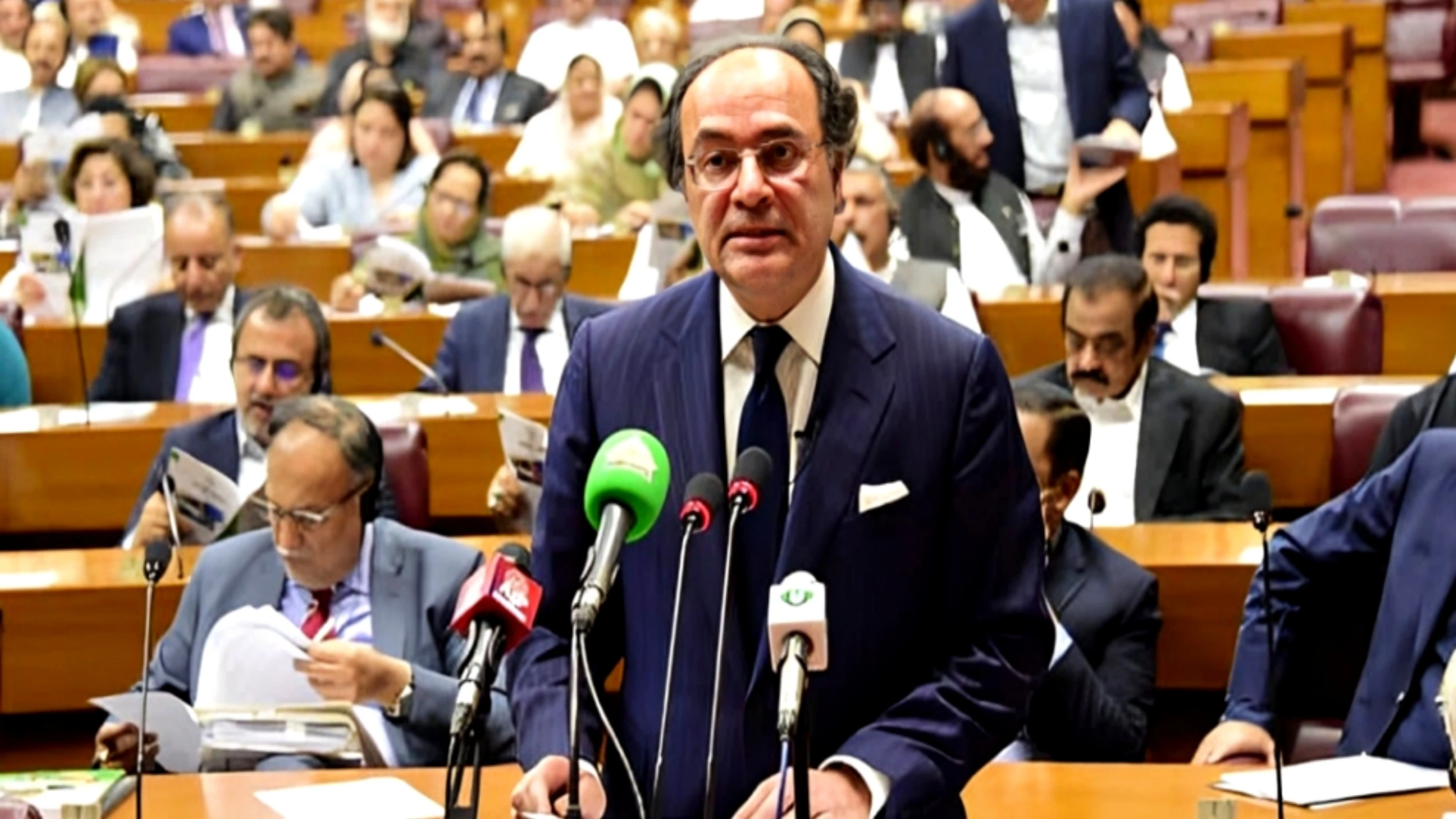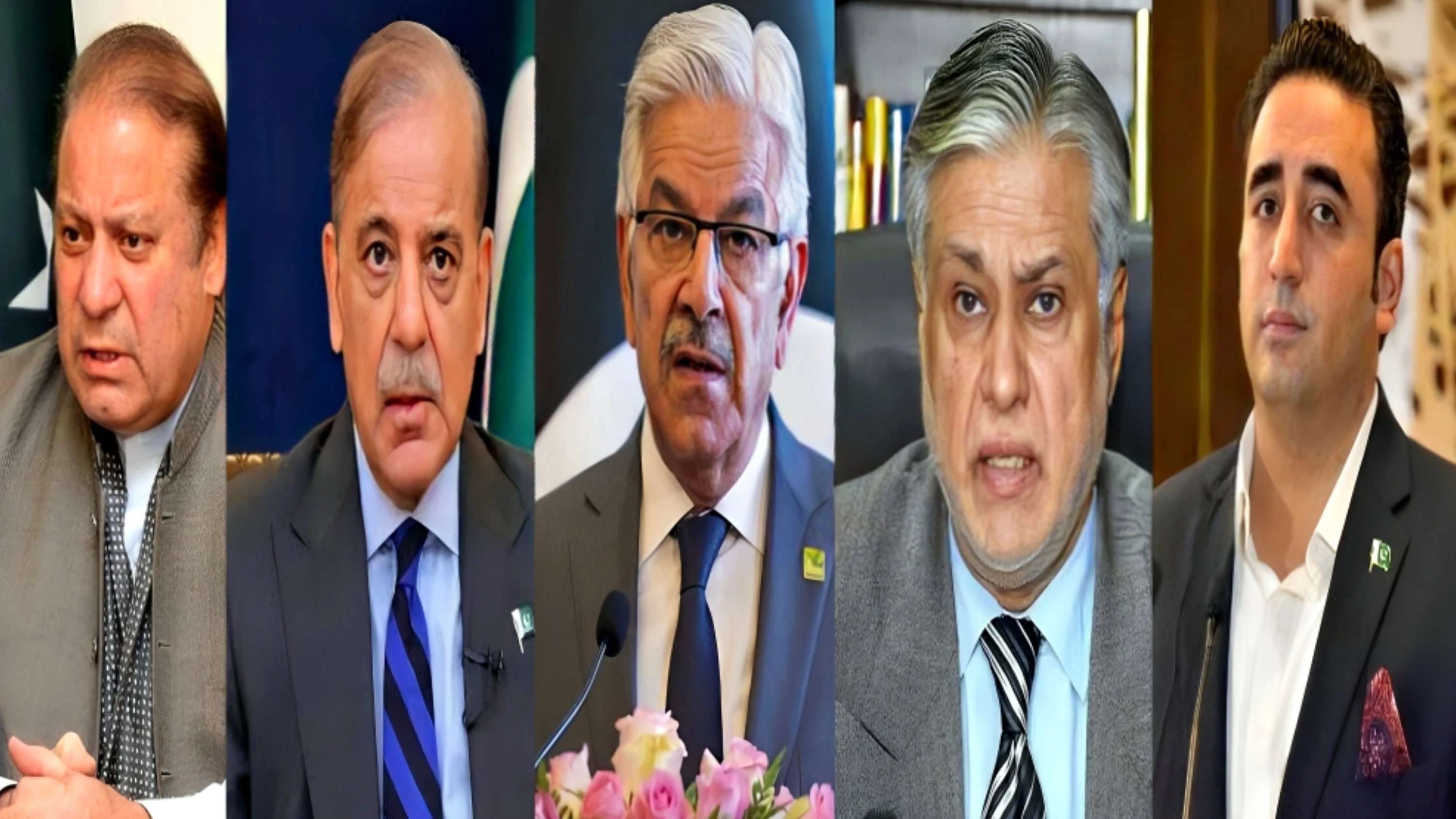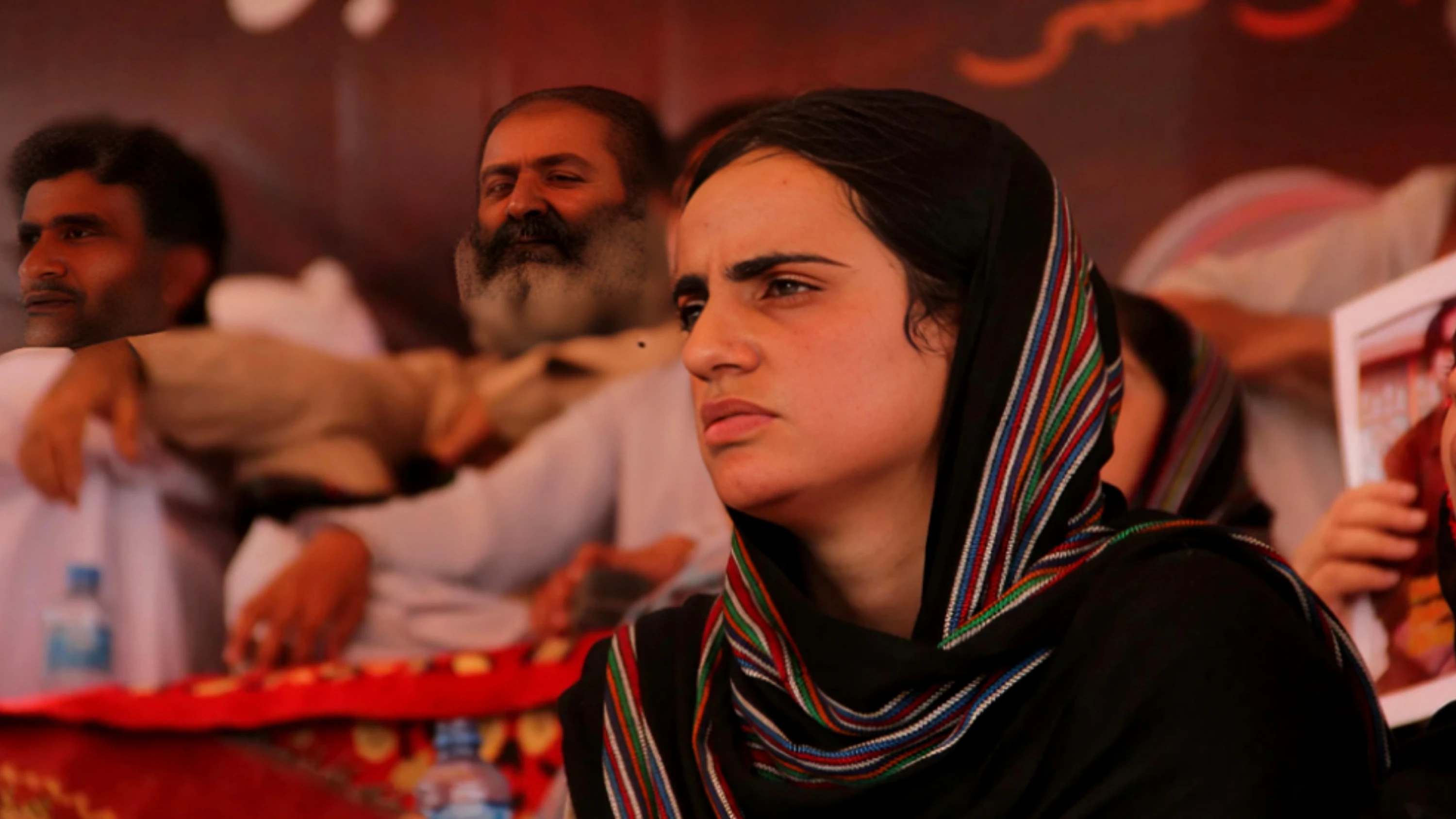Islamabad: The National Assembly erupted in a two-hour uproar this evening as Finance Minister Muhammad Aurangzeb tabled the 2025–26 fiscal budget. Opposition members, particularly from Pakistan Tehreek-e-Insaf (PTI) and allied parties, staged a vociferous protest from the session’s outset, chanting slogans like “Release Imran Khan,” “Fake Government, Fake Budget,” and “Qaidi No. 804,” referring to Imran Khan’s incarceration.
Despite the session’s scheduled start at 5:00 pm under Speaker Ayaz Sadiq, proceedings officially began around 5:30 pm amid loud and persistent shouting. PTI lawmakers held banners demanding Khan’s liberty, hurled torn-up copies of the assembly agenda into the air, and advanced toward the speaker’s dais to intensify their demonstration.
As Aurangzeb delivered his speech, opposition members used whistles and chants to disrupt, forcing some journalists in the media gallery to step outside to hear him. Loud chants repeatedly drowned out the minister’s voice, yet he remained undeterred—reading his notes steadily and continuing uninterrupted until the end.
Meanwhile, outside, the Red Zone bristled with hundreds of government contract employees demanding permanent status and inflation-linked salary hikes. Heavy police presence and stringent security measures blocked all routes to the Parliament House, although protest chants reverberated into the parliamentary lawns.
Frustrated by the disruptions, the Speaker postponed assembly proceedings until later this week, indicating that budget discussions and voting—in line with the ruling coalition’s majority—will take place in the final week of June.
Key Highlights from the Budget Speech
Despite the chaos, Aurangzeb outlined a 17.6 trillion-rupee budget supported by revenue from taxes. He emphasized progress in curbing inflation, warned of stringent economic decisions made to restore fiscal discipline, and projected a current account surplus. He also forecasted $38 billion in worker remittances and a $14 billion foreign exchange reserve by year-end.
Aurangzeb announced a range of relief measures for low- and middle-income groups, including:
- Concessional loans for low-income families to buy or build homes, expected to generate economic activity and jobs.
- Income tax rate reductions for salaried individuals—e.g., reducing tax from 5% to 1% for those earning ₨0.6M–1.2M, and adjustments across income slabs.
- Pension reforms tying increases to CPI and discouraging early retirements.
- Reductions in withholding tax on property purchases and abolition of federal excise duty on commercial real estate transfers in key areas, including Islamabad.
He also made several structural and tax-policy adjustments:
- Introducing a gradual 10% sales tax on previously exempt former FATA and Balochistan districts over five years.
- Implementing phased tariff reforms guided by IMF recommendations—eliminating extra customs duties in four years, regulatory duties in five, and consolidating customs slabs.
- Harmonizing sales tax on petrol, diesel, and hybrids to 18%, and imposing an environmental carbon levy of ₨2.5 per liter (rising to ₨5).
- Introducing a tiered “new energy vehicle levy” to promote electric vehicles.
- Expanding the digital tax net to include e-commerce and online services, requiring monthly reporting.
Sector allocations and financial commitments:
Federal development budget: ₨1 trillion; provincial development program: ₨2.869 trillion.
Sectoral funding:
NHA: ₨226.98 billion
Power Division: ₨90.22 billion
Water Resources: ₨133.42 billion
Defense: ₨2.55 trillion, a 20% year-over-year increase.
Education and youth skills: ₨4.3 billion to train 161,500 youth.
Social welfare: Benazir Income Support increased by 21%; provided pensions and allowances to public servants and judiciary staff.
Health sector: ₨14.3 billion for 21 ongoing projects.
PSDF Science & Tech: ₨4.792 billion for 24 projects.
Agriculture and dairy sectors: new taxes on related machinery and goods.
Cashless economy incentives: tax disincentives for non-filers and unregistered businesses.
Market Reaction
The Pakistan Stock Exchange responded positively on Wednesday, opening with a 1,200-point gain and swelling to +1,650 points by midday, reaching 123,723. Analysts credited the rally to the absence of new taxes in the budget, which they say bolstered investor sentiment.
The budget, aimed at balancing fiscal restraint with social uplift, now moves to full debate and house vote later this month, with possible approval expected. The outcome of the protest-driven disruptions may shape future parliamentary conduct and security protocol.








